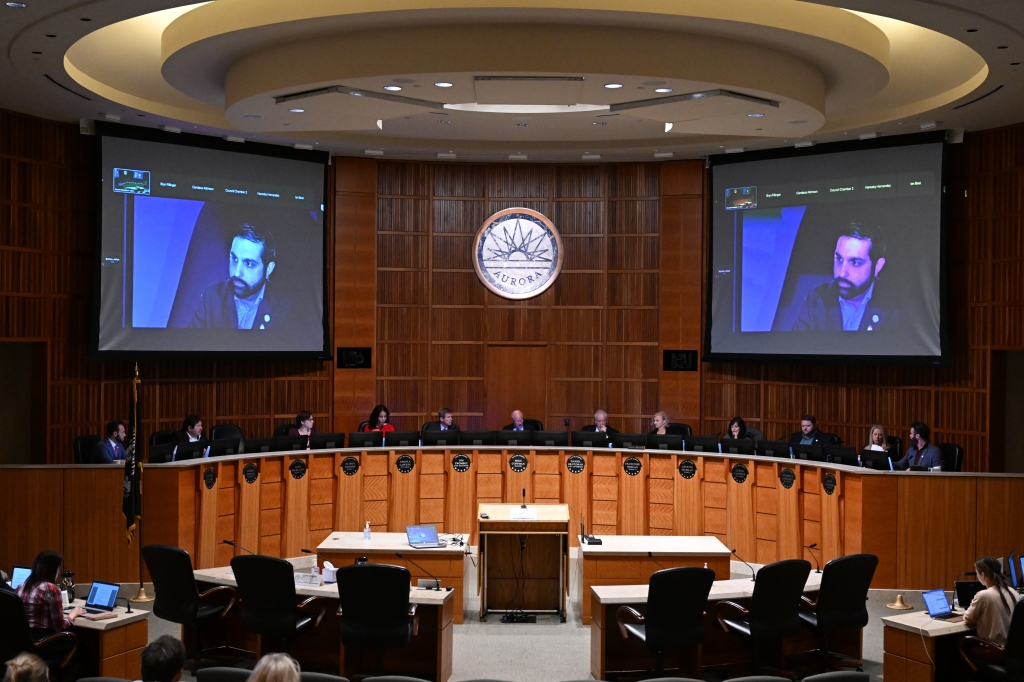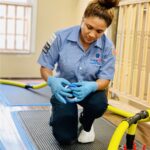
Aurora residents can go back to watering their lawns three times a week
Last Updated on June 29, 2023 by Admin
[ad_1]

After weeks of heavy rainfall, the Aurora City Council on Wednesday removed the city’s drought declaration, returning to normal water availability conditions.
The vote comes after city staff emailed council members about removing the restrictions, as The Denver Post first reported earlier this month.
That means residents and businesses will, as of Thursday, no longer be restricted to watering their lawns only twice a week — those who watered them more were faced with a surcharge on their bills during the drought declaration. They can now go back to watering three times a week before 10 a.m. and after 6 p.m.
“With that, we feel we’re in good shape for the remainder of this year and prepared well headed into next year,” Aurora Water Manager Marshall Brown told council members on Wednesday.
It wasn’t just the consistent rain that led to the change, which doesn’t directly increase water in the reservoirs — Aurora gets most of its water from mountain snowpack outside the city — but it did help by lowering water demands.
Brown said the city’s lease with Pueblo Water for 9,000 acres of water at a $7.5 million cost also contributed to making up shortfalls. As of Wednesday, the city’s reservoirs were at 85% of capacity. When the City Council approved the drought declaration earlier this year, the reservoirs were at 54% capacity at a time when they would normally be closer to 65% to 70%.
The goal with the drought declaration was to reduce outdoor water use by 20%, but with the rains, Aurora’s outdoor water use was reduced by 80% in May and June, which is partly why city staff recommended the rollback. The majority of residential customers didn’t turn on their outdoor irrigation systems at all during that time period, while about half of commercial customers did turn on their systems, according to Brown. Most of those businesses were irrigating turf, he added, which did not need the water.
Much of Aurora residents’ confusion about the declaration stemmed from the fact that statewide snowpack averages were up, and that surrounding cities, including Denver, weren’t under drought restrictions. But the watersheds Aurora has rights to had lower levels of snowpack, city staff said.
Although the City Council vote on Wednesday to return to normal water conditions was unanimous, Council members Danielle Jurinsky and Curtis Gardner again voiced their displeasure at the surcharges residents faced in May and June, with Jurinsky calling for customers who were cumulatively charged $600,000 in drought surcharges to be refunded.
“When this monsoon season started when the flooding started in this city, this governing body at any point up until now could have got together and ended this at any point but we waited this long. … I’m disappointed in us,” she said.
Meanwhile, Councilwoman Alison Coombs called Jurinsky’s proposal “grandstanding” and said city staff and council have to make data-driven decisions based on what they know at the time, including having no reason to believe that one big rainstorm or flood would help the reservoirs recover.
“I think it was the responsible and right decision to make at that time,” she said. “And for the people who chose to turn on their irrigation systems while people are flooding knowing that surcharges were coming forward, that was a choice that they made.”
[ad_2]
Source link




